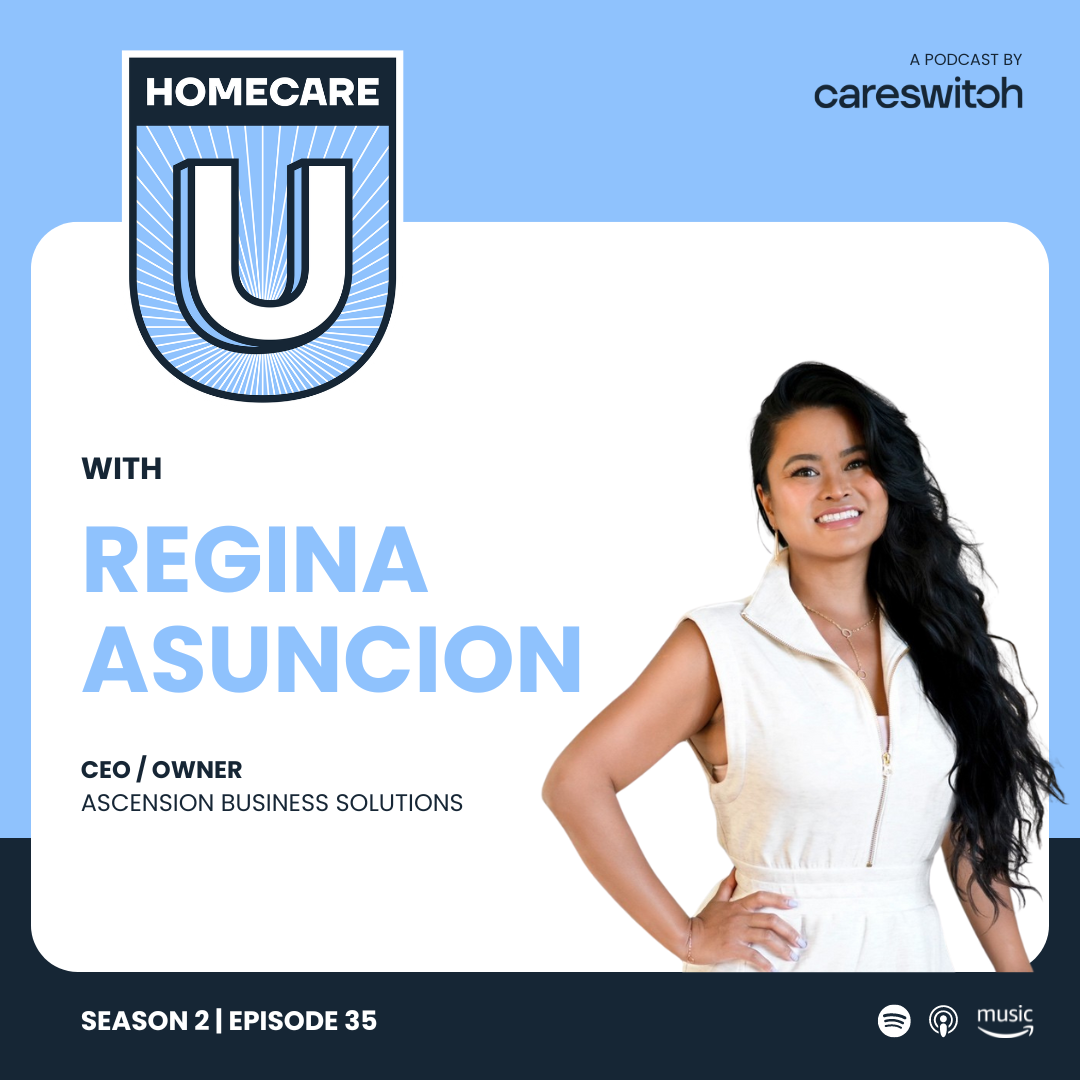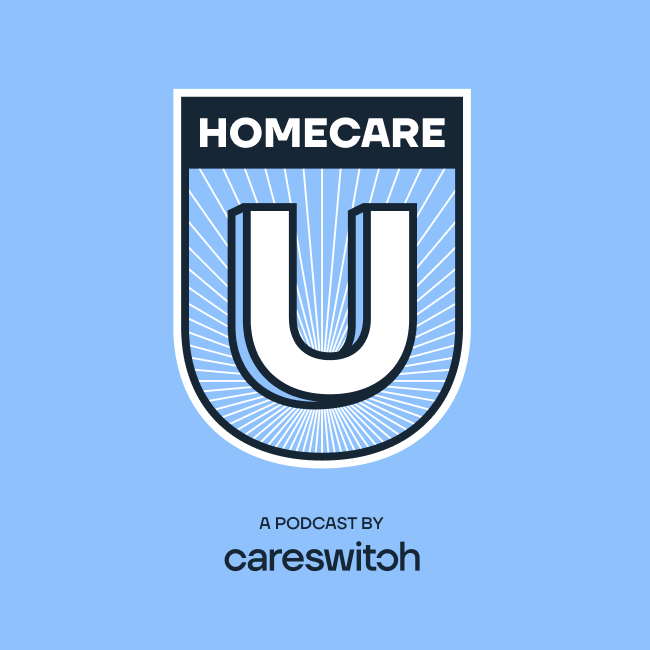
Why You Might Consider a Virtual Assistant for Your Next Office Hire
Virtual assistants are transforming some home care businesses, from recruitment to on-call support. Regina Asuncion, CEO of a leading virtual assistant firm, shares the honest truth about the pros, cons, and everything in between when it comes to outsourcing critical home care tasks. Whether you're curious about the cost-effectiveness or the challenges involved, this episode will give you a clear picture of whether or not you should consider virtual assistants for your home care operation.
Show Notes
Connect with Regina on LinkedIn
Ascension Business Solutions—optimize your home care operations with virtual assistants
Listen to this episode on Spotify or Apple Podcasts
Home Care Virtual Assistants FAQ
What is a virtual assistant (VA)?
A VA is a remote worker who provides administrative, technical, or creative assistance to clients from a remote location. In the context of home care, VAs can handle a variety of tasks, such as:
- Recruiting: Posting job ads, screening resumes, scheduling interviews, and managing the onboarding process for caregivers.
- Scheduling: Coordinating caregiver schedules, managing client appointments, and handling last-minute changes or emergencies.
- On-call services: Providing after-hours support to clients and caregivers, including weekends and holidays.
- Data migration: Assisting with data entry, organization, and management, as well as transitioning between software systems.
- Marketing: Creating newsletters, managing social media accounts, and implementing other evergreen marketing strategies.
- Other administrative tasks: Answering phones, managing emails, preparing reports, and handling other day-to-day administrative tasks.
What are the benefits of hiring a VA for my home care business?
- Cost savings: VAs can save you money on salaries, benefits, payroll taxes, and overhead costs.
- Increased efficiency: VAs can streamline your operations and free up your time so you can focus on growing your business.
- Improved customer service: VAs can provide 24/7 support to your clients and caregivers, ensuring their needs are met promptly and efficiently.
- Access to specialized skills: VAs can bring a wide range of skills and expertise to your business, such as recruitment, scheduling, marketing, and data management.
- Scalability: VAs can easily scale their services up or down as your business needs change.
How much can I save by hiring a VA instead of an in-house employee?
On average, you can save around 61% by hiring a VA compared to an in-house employee. This is because you won't have to pay for salaries, benefits, payroll taxes, or overhead costs.
What should I look for when hiring a VA for my home care business?
When hiring a VA, it's important to look for someone with:
- Experience in the home care industry: This will ensure they understand the specific challenges and nuances of your business.
- Excellent communication skills: Since you'll be working with them remotely, it's crucial they can communicate effectively in writing and verbally.
- Strong organizational and time management skills: VAs need to be able to manage their time effectively and stay on top of their tasks.
- A proven track record of success: Ask for references or case studies to get a better sense of their past work.
- Cultural fit: It's important to choose a VA who aligns with your company's values and culture.
How can I overcome the language barrier when working with a VA from overseas?
Many VAs, particularly those in the Philippines, have a high level of English proficiency due to it being taught in their education system from a young age. To ensure effective communication, look for VAs with:
- A neutral accent: Request an introductory video call to assess their accent and clarity.
- Excellent written communication skills: Pay attention to their grammar and vocabulary in emails and other written correspondence.
- Industry-specific knowledge: Ensure they understand home care terminology and concepts.
How do I integrate a VA into my business and team?
To ensure a smooth integration:
- Have a clear onboarding process: Provide them with all the necessary information about your business, processes, and expectations.
- Schedule regular check-ins: Communicate frequently to answer questions, provide feedback, and track their progress.
- Introduce them to your team: Let your in-house team know about the VA's role and encourage collaboration.
- Provide ongoing training and support: Invest in their development to help them grow and succeed in their role.
How do VAs handle creating and documenting standard operating procedures (SOPs)?
Some VA companies, particularly those specializing in home care, train their VAs to create SOPs by:
- Recording and analyzing workflows: They'll document your existing processes and identify areas for improvement.
- Creating detailed step-by-step instructions: They'll create easy-to-follow SOPs with screenshots and video tutorials.
- Storing SOPs in a centralized location: This ensures everyone on your team has access to the latest versions.
- Updating SOPs as needed: They'll keep your SOPs up-to-date to reflect any changes in your business or processes.
What are some common misconceptions about working with VAs?
- "VAs are not reliable": This is a common misconception, however, many VAs are highly reliable and dedicated to providing quality work. It's important to choose a reputable VA company and to have a clear onboarding and communication process in place.
- "VAs are only good for low-level tasks": VAs can handle a wide range of tasks, from administrative work to marketing and customer service.
- "Working with a VA is too complicated": With the right VA company and a clear understanding of your needs, working with a VA can be a seamless and rewarding experience.
